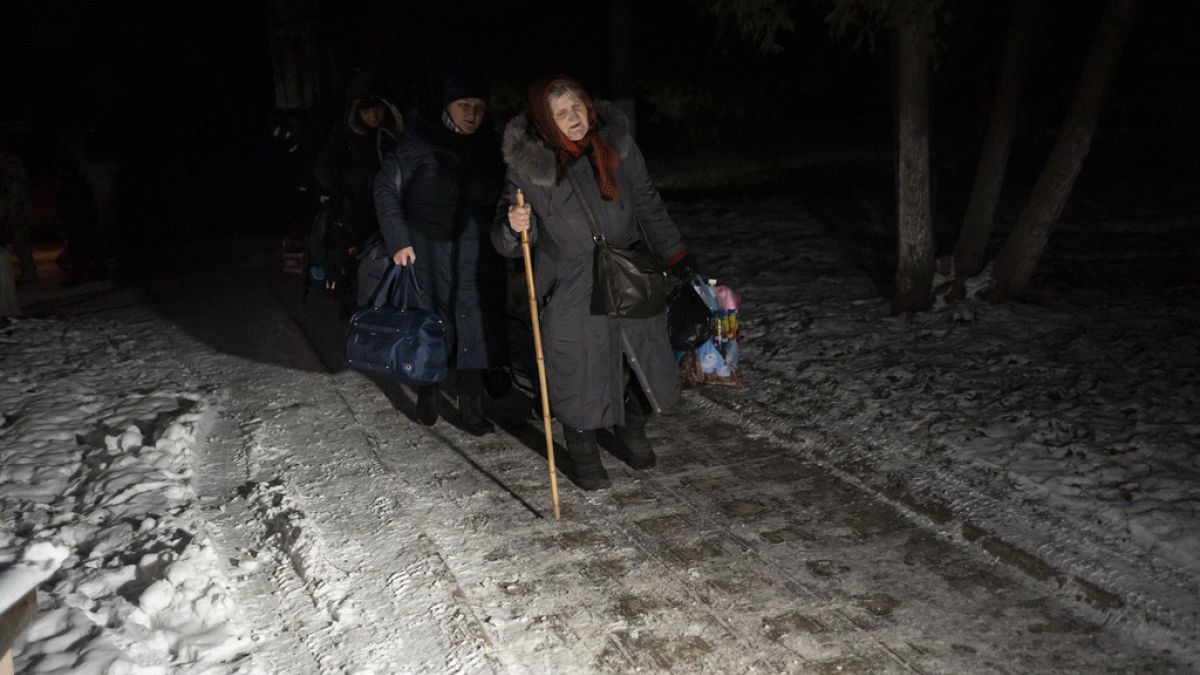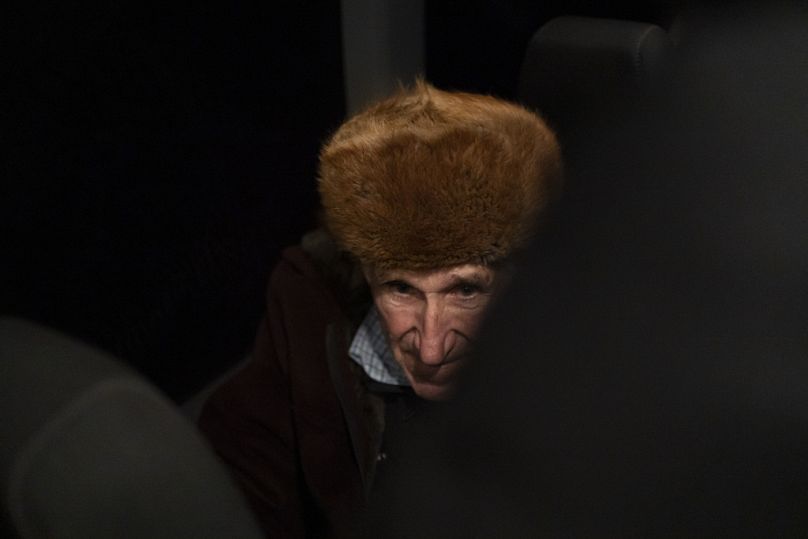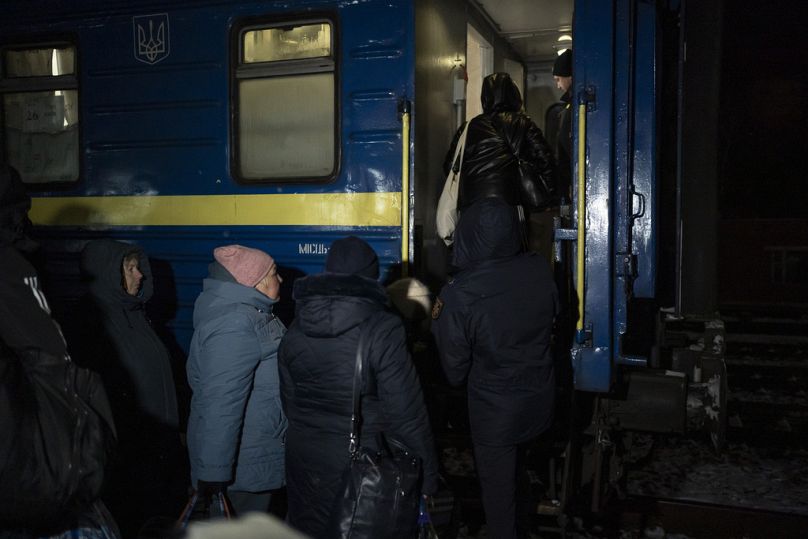Thousands of people flee to Ukraine from territories held by Russia through an unofficial crossing point between the two countries amid a brutal war.
Those who opt for this route endure painstaking searches from both sides and trek on foot along a two-kilometre corridor along the front line of the fighting - a no man's land that Ukrainians refer to as the “grey zone” - between the Belgorod region of Russia and Ukraine's Sumy region.
People have fled numerous Russian-occupied regions - from Zaporizhzhia and Kherson in the southeast to Donetsk and Luhansk in the northeast to Crimea, the southern peninsula that Russia annexed in 2014.
Some travel with children or elderly parents. By the time they arrive in Sumy, they are exhausted, barely finding the strength to carry the few belongings they were able to grab before they fled.
It is there that Ukrainian volunteers welcome them, providing food and free transportation - usually by train or by bus - to the capital of Kyiv and a host of other places.
Kateryna Arisoi is the director of the nongovernmental organisation Pluriton, which runs a volunteer-staffed shelter on the Ukrainian-controlled side of the corridor.
More than 15,500 people have passed through the shelter since it opened in March, said Arisoi, a refugee who fled her home in the eastern city of Bakhmut after it was reduced to rubble and taken over by Russian military forces in May.
“I also lost everything...I know the feeling when you lose your home, your life, your status when you become like a zero,” she said.
Arisoi says for some of those fleeing, the corridor is part of a long, circuitous route they must follow to travel to non-occupied areas of their province that are not that far away.
Because they can't cross the front lines dividing those areas, a trip that used to last only a few hours now costs them more than a day.
That was the case for 73-year-old Halyna Sidorova, who years ago left Zaporizhzhia city - where her children and grandson are located - to care for her elderly mother in a different area of Zaporizhzhia province. During the war, the two areas were divided by a front line.
Shortly before her 93-year-old mother's death, she told her she would stay to say her goodbyes and then return home to the provincial capital.
When the time came, Sidorova silently packed her things, grabbed a walking stick, and embarked on the challenging journey back to Zaporizhzhia city. She told no one in the village.
Throughout the difficult trek, she found solace in prayer, which helped her maintain her spirits.
Also at the centre in Sumy was Lidiia Martovytska, who described making the "difficult" journey alongside her son, Roman.
When people arrive at the shelter, they exchange grim stories of life under Russian occupation. Many are fearful and agreed to speak to the news media only on the condition of anonymity.
Civilians in occupied territories face detention for minor reasons, such as speaking Ukrainian or for factors beyond their control, such as being a young man, according to dozens of people The Associated Press interviewed over several months.
Thousands are being held without charge in Russian prisons and areas of the occupied territories, according to the findings of AP’s investigation.


